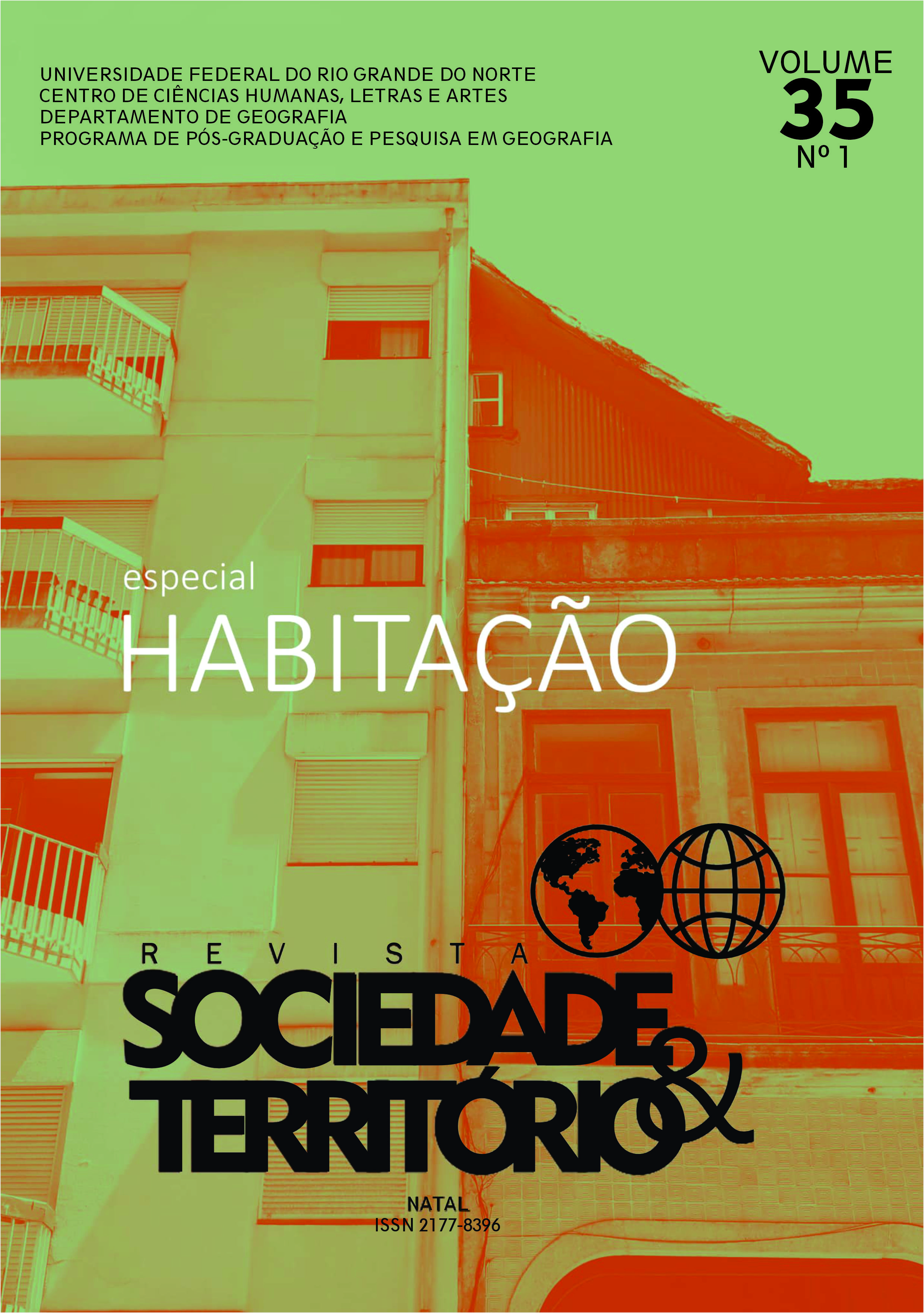A GENDERED TAXONOMY ON HOUSING PRECARITY
CHALLENGES FROM LISBON METROPOLITAN AREA DURING THE COVID-19 PANDEMIC
DOI:
https://doi.org/10.21680/2177-8396.2023v35n1ID32254Resumo
‘How to stay home?’ is a question that many posed when the COVID-19 pandemic forced us to stay indoors. Housing precariousness is still a problem for circa sixty thousand families in Portugal, to whom escaping poverty, and several types of discrimination is still hard. This paper is based on an action-research project focused on housing precariousness, aiming to build a taxonomy on the different experiences lived by women, under the neoliberal context of the Global North. Starting from 10 in-depth interviews, this paper makes investigates housing precarity from a gendered perspective, identifying the main inequalities before and during the pandemic, as well as the priorities proposed for/from women. The relation between housing and gender is questioned from the way we organize ourselves: socially and spatially. Understanding this relation can be a catalyst to better responses and effective public policies, and more effectively end precarity.
Downloads
Downloads
Publicado
Como Citar
Edição
Seção
Licença
Copyright (c) 2023 Sociedade e Território

Este trabalho está licenciado sob uma licença Creative Commons Attribution-NonCommercial-ShareAlike 4.0 International License.
A Revista Sociedade e Território deterá os direitos autorais dos trabalhos publicados, mas não se opõem a sua reprodução em qualquer parte do mundo desde que citados os direitos autorais. Os direitos autorais se referem à publicação em qualquer parte do mundo, incluindo os direitos às renovações, expansões e disseminações da contribuição, bem como outros direitos subsidiá¡rios. Os(as) autores(as) têm permissão para a publicação da contribuição em outro meio, impresso ou digital, em português ou em tradução, desde que os devidos créditos sejam dados à Revista Sociedade e Território.
A Revista Sociedade e Território se reserva o direito de adequar os textos submetidos sempre que for para melhorar sua clareza ou ajustar às normas de publicação, e desde que o autor não se manifeste em contrário.
La Revista Sociedade e Território retendrá el copyright de los trabajos publicados. Los derechos tienen referencia con la publicación del trabajo en cualquier parte del mundo, incluyendo los derechos a las renovaciones, expansiones y diseminaciones de la contribución, así como otros derechos subsidiarios. Los autores tienen permiso para la publicación de la contribución en otra medio, materia impresa o digital, en portugués o en otra traducción, desde que los créditos tenidos sean dados a la Revista Sociedade e Território.





